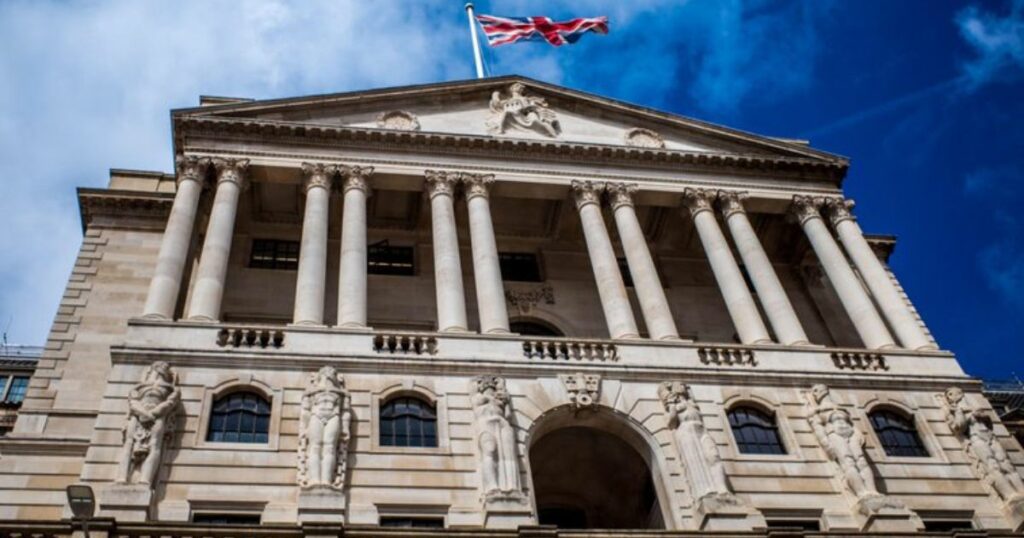UK interest rates raised to 4.25%
The Bank of England’s Monetary Policy Committee (MPC) has decided to increase the Bank Rate from 4% to 4.25% in response to inflation concerns.
- This marks the 11th consecutive interest rate hike in the UK as the Bank strives to address rising inflation levels, which reached 10.4% in February and dashed hopes of easing price pressures.
- With this move, UK interest rates have reached their highest point since the early stages of the financial crisis in October 2008, when the Bank Rate stood at 4.5%.
- BoE also reveals it no longer expects the UK to face a technical recession this year.

Why was it raised?
The increase in inflation was partially caused by the rising prices of food and restaurant expenses. The Bank of England noted in their release that although “inflation had unexpectedly increased”, it was likely to fall sharply throughout the year.
Wage growth has also fallen to 5.7% in the three months leading up to January, while unemployment remains at a near-record low of 3.7%. The Monetary Policy Committee (MPC) members consider this data, believing that strong wage growth can contribute to high inflation.
During the meeting, the MPC voted by a majority of seven to two to raise the rate by 25 basis points, while both members of the minority preferred to keep the base rate at 4%.
Last Thursday, the European Central Bank (ECB) raised its interest rates by 0.5%, stating its intention to closely monitor the market due to the ongoing turbulence at Credit Suisse. “The Governing Council is monitoring current market tensions closely and stands ready to respond as necessary to preserve price stability and financial stability in the euro area,” it said in a statement.
Jeremy Hunt welcomes interest rate hike
Chancellor Jeremy Hunt expressed his approval of the Bank of England’s decision, stating that it will assist in gaining control over the increasing prices.
“With rising prices strangling growth and eroding family budgets, the sooner we grip inflation, the better for everyone.
“That’s why we support the Bank of England’s actions today and why we will continue to play our part in this fight by being responsible with the public finances, alongside providing cost of living support worth an average of £3300 per household over this year and next.”
So who will today’s increase impact?
How will it affect mortgage payments?
- Most standard variable rates (SVRs) will go up, but not necessarily by the total 0.25 points
- Some lenders may take time to announce their plans
- The average SVR is now above 7% for the first time since October 2008
- It is recommended that most people on an SVR switch to a cheaper option
The interest rate increase will impact about 2.2 million people with variable-rate mortgages announced today, as their monthly payments will increase. Roughly half of these individuals are on either a base rate tracker or a discounted-rate deal, while the other half pays their lender’s standard variable rate (SVR).
Those on a base rate tracker can expect their payments to reflect the total rise soon as it directly follows the base rate. For instance, someone on a tracker at 5% would see their rate increase to 5.25%, resulting in an additional £21 per month on a £150,000 repayment mortgage with 20 years remaining. This would bring the monthly payment from £990 to £1,011.
New mortgage rates
It hasn’t been easy for those looking to get a new fixed-rate mortgage over the last year.
Following the increase in interest rates, new fixed rates mortgages became more expensive, with a significant rise occurring after Kwasi Kwarteng’s poor mini-budget in September. By late October, the average new two-year fixed-rate mortgage reached 6.65%.
However, since then, new fixed-rate costs have gradually decreased as lenders adjust their pricing based on money market “swap rates“. As of March 22, the average new two-year fixed-rate mortgage was 5.31%, according to Moneyfactscompare.co.uk. The average new five-year fix is now below 5%, with a standing of 4.96% on Wednesday.
Savings accounts
While savers may welcome the news of an increase in the Bank of England’s base rate, they should also take the time to review their current savings accounts to ensure they are receiving a competitive return. It is important to note that not all savings providers will increase their rates, which is why savers should consider switching to a better option if available. Therefore, savers must compare and switch if they find a more favourable return elsewhere.
What does this mean?
 Partner, Kareem Rathore, gives his opinion on what this will mean for clients:
Partner, Kareem Rathore, gives his opinion on what this will mean for clients:
“A rate hike today would mean better savings rates for cash deposits. However, it could have an adverse effect on clients invested in the markets.
Interest rate-sensitive stocks such as technology and generally growth-orientated stocks may drop in price, as rate hikes significantly affect the value of such stocks.
For bondholders, it may possibly mean higher bond yields to compete with higher savings rates. Also, we may notice a jump in the spread between corporate and sovereign debt, pricing a risk premium on corporate debt from a further hike, especially with financial institution bonds after the aftermath of SVB and Credit Suisse.
As the markets are forward-looking, a surprise in inflation data may indicate further rate hikes in the future, which market participants may price into bond yields and stock valuations.”
Get in touch for more information or to speak with a qualified financial adviser.
About Author
How can we help you?
If you would like to speak to one of our advisers, please get in touch today.



